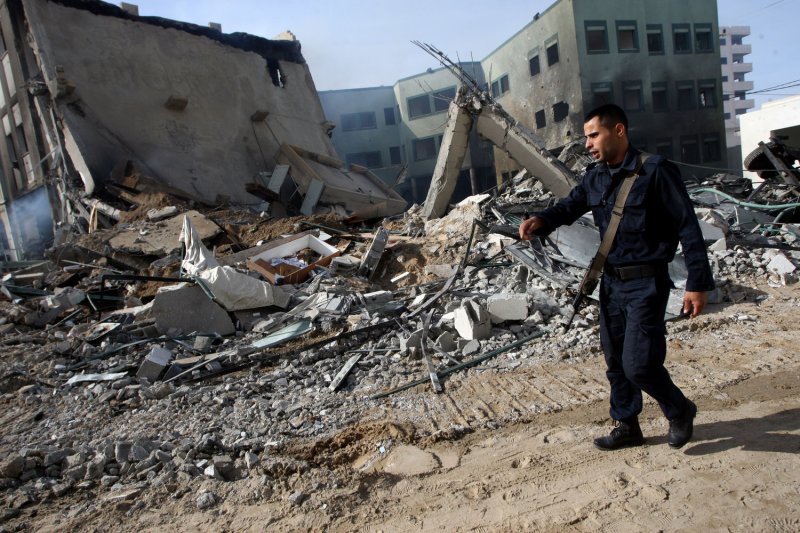NEW YORK, Nov. 16 (UPI) -- Citizens of both the Gaza Strip and Israel are being put at risk by the escalation of violence, the United Nations says.
"We support the calls of the secretary-general for an immediate de-escalation of tensions and his demand that both sides should do everything to avoid further escalation and must respect their obligations under international humanitarian law to ensure the protection of civilians at all times," said the U.N. Relief and Works Agency for Palestine Refugees in the Near East.















